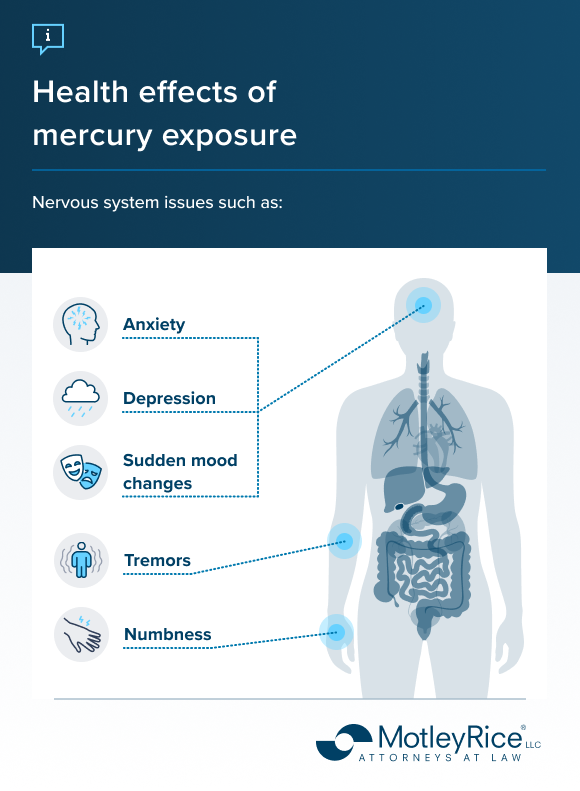The toxic baby food lawsuits in the MDL allege that defendants’ products contained high levels of arsenic, cadmium, lead and mercury. Each of these toxins poses serious dangers to children exposed to them.
In some cases, the ingredients are the source of the toxins. Rice, fruit juice, certain spices and root vegetables in baby foods have been linked to toxic heavy metal exposure.
How do heavy metals affect human health?
The heavy metals found in some baby foods can have serious health effects on the human body. The information below outlines potential effects of food or household products containing these toxins.
Arsenic
Lower levels of arsenic exposure can cause nausea, abnormal heart rhythm and a “pins and needles” sensation in the hands and feet. Less noticeable symptoms can include decreased white and red blood cell production and damaged blood vessels.
Long-term exposure to low arsenic levels can also cause darkening of the skin and warts on the palms, torso and soles of the feet.
The EPA set a limit of .01 parts per million (PPM) for arsenic in drinking water.

Cadmium
At lower exposure levels, cadmium builds up in the kidneys. This can lead to kidney disease, lung damage and fragile bones.
The FDA and EPA set regulatory limits of 5 parts per billion of cadmium in drinking water.

Lead
Lead exposure may not reveal short-term symptoms. But even lower levels of exposure can impact children’s brain development. Lower IQ, reduced attention span and signs of antisocial behavior are all potential results of lead exposure in children.
Lead typically works its way to the brain, liver, kidney and bones. It accumulates in the teeth and bones.
Researchers believe the effects of lead poisoning are irreversible. There is no known “safe” limit on blood lead levels.

Mercury
The health effects of mercury can vary by:
- How long the exposure lasted
- The amount of exposure
- The type of mercury
- Whether it was inhaled, ingested or touched
Babies who eat food tainted with mercury are at risk of damage to their nervous system. Signs of exposure can include anxiety, depression, mood changes, numbness or physical tremors.
Long-term effects include difficulty solving problems, hand-eye coordination issues and motor skill impairment.









